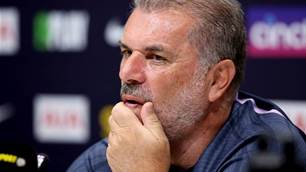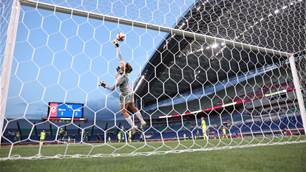MIKE Ashley's controversial tenure at Newcastle reached its latest crossroads this evening.
The sportswear tycoon's soap opera reign at St James' Park took a turn for the better when the Magpies secured their return to the Barclays Premier League without kicking a ball as Nottingham Forest were held to a goalless draw by Cardiff.
Promotion and the estimated £60million it will bring into the Tyneside coffers represent the dual rewards for an impressive fightback by a club which was plunged into football's hinterland by relegation at the end of last season.
Ashley remains public enemy number one for those supporters who will never forgive him for the ruinous errors his administration made as the club slid into the lower reaches of the Barclays Premier League and ultimately plunged through the trapdoor with a squad of highly-paid players drastically under-achieving amid chaos off the pitch.
That group, however, has gradually dwindled in both size and volume over the past nine months or so, and while a general resentment over a decline hastened by dreadful decision-making in the boardroom remains, the intensity of the rancour has softened for many.
Ashley's rehabilitation may as yet be far from complete, but the man who assumed control in 2007 is due credit for his financial commitment, which has seen him bankroll the club to the tune of a further £36million or so this season after once again shelving plans to offload it.
In many ways, that decision was taken out of his hands: despite much bluster, none of the interested parties came anywhere near handing over the £100million he wanted to sell a business he had bought for £134.4million.
Having earlier turned his back on Alan Shearer and his hopes of launching his managerial career in earnest - Ashley had already locked horns with the other Geordie untouchable, Kevin Keegan, in a bust-up which was to cause further embarrassment when his claim for constructive dismissal was heard and found proven - he asked Chris Hughton to reprise his role as caretaker once again.
It was not what the fans wanted and as the big names jumped ship, the outlook on Tyneside grew increasingly pessimistic.
But against all the odds, Hughton and those players who remained made more than a fist of it during the early weeks of the campaign and despite the acrimony in the stands, Ashley and managing director Derek Llambias, as if they had stumbled across the road to Damascus, quietly went about the business of rebuilding a football club.
Newcastle were taken off the market in October and Hughton appointed on a permanent basis, and with modest but shrewd investment in January, the curve has remained upward.
But Ashley now faces a new challenge.
His detractors will argue that what he has done this season is nothing more than he should have been doing all along, although Llambias has insisted the club could have been in the same boat as Portsmouth had the owner not repeatedly dipped into his pocket.
But sources on Tyneside insist the Magpies' finances are healthier than they have been for some time and should they retain their top flight status for two seasons, they will be in good shape.
However, there is a balance to be struck between ambition and realism, and the marquee signings of the recent past have long since been consigned to history.
Ashley is prepared to invest to strengthen the team, but any transfer dealing will be conducted in line with a strict budget, which will also govern wage deals.
For that reason, the club will continue to look for young, up and coming talent, a policy which brought at best limited success during Dennis Wise's controversial spell as executive director (football), but one which has started to bear fruit since his departure.
The Magpies are now, of course, a significantly more attractive proposition to potential buyers than they were last summer, although investors are not currently queuing up to buy into football in general.
In the circumstances, Ashley is likely to stick rather than twist, and while he could be forgiven for tiring of the abuse hurled in his direction, there are those who now appear prepared to offer an olive branch.
Related Articles

Postecoglou looking to A-League to 'develop young talent'
.jpeg&h=172&w=306&c=1&s=1)
Big change set to give Socceroos star new lease on life in the EPL













